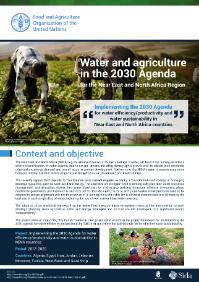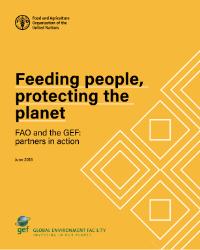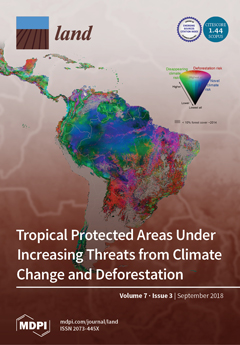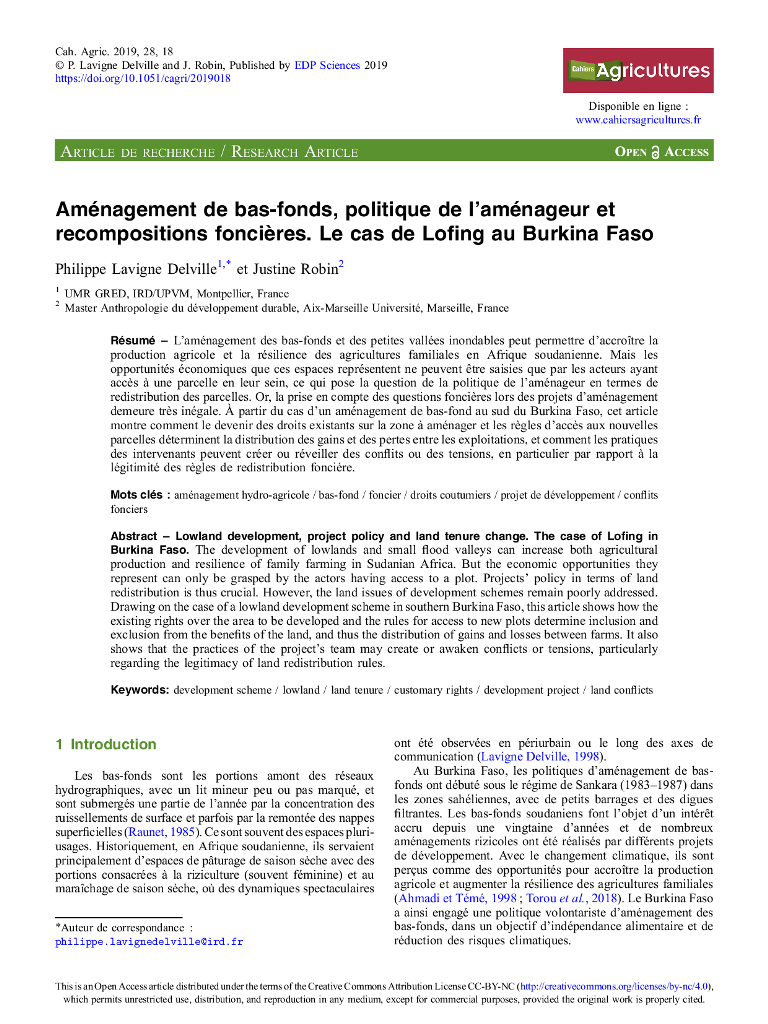Water and agriculture in the agenda 2030 for the Near East and North Africa Region
The NENA region already exposed to chronic shortage of water will face in the coming decades a severe intensification of water scarcity due to several drivers, including demographic growth and its related food demands, urbanization, energy demand and overall socio-economic development. Furthermore, NENA is experiencing more frequent, intense extreme events (in particular droughts) as a consequence of climate change.







